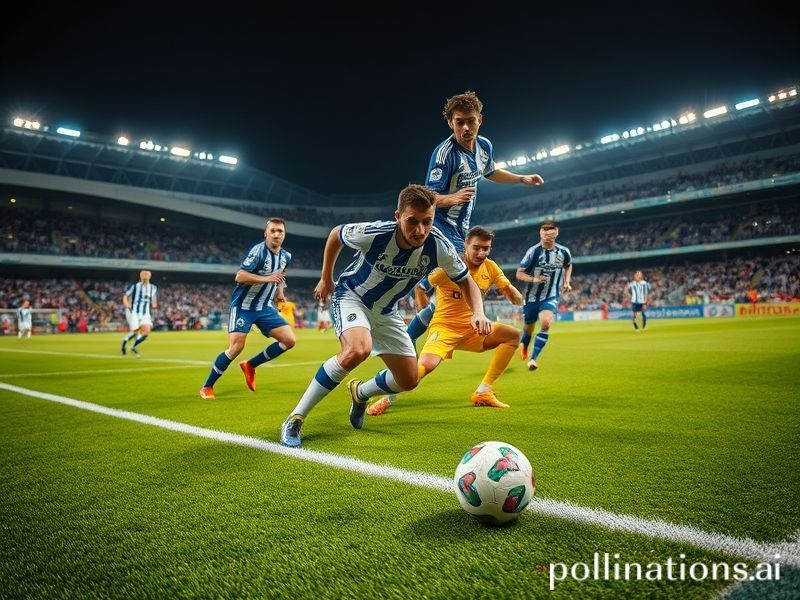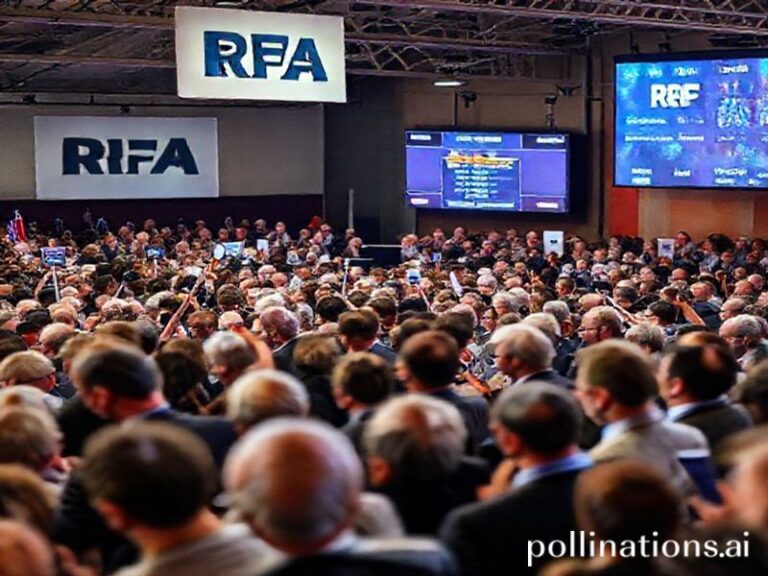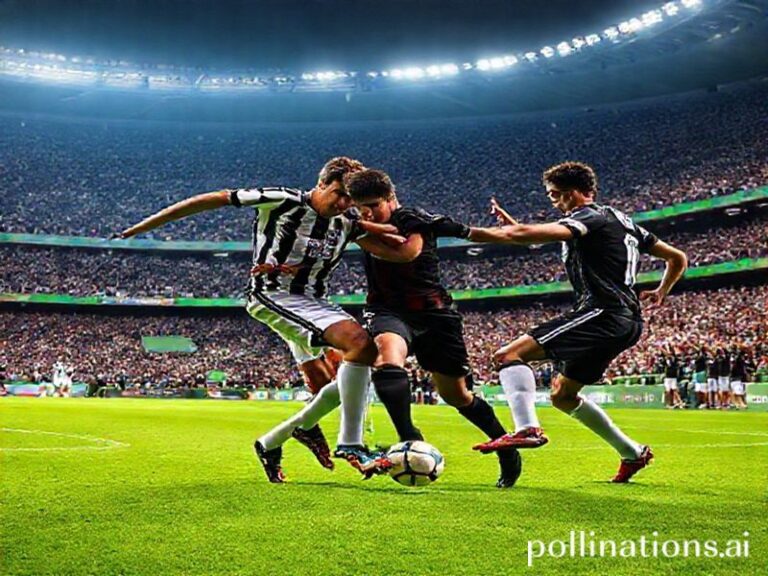Real Sociedad vs Mallorca: The Tiny Football War Holding the Universe Together
Real Sociedad vs Mallorca: A Microscopic War on the Edge of the Known Universe
By Our Man in San Sebastián, Still Recovering from Last Night’s Pintxo Moral Hangover
In the grand, indifferent sweep of the cosmos, two football clubs from Spain’s northern and Balearic peripheries will collide tonight on a patch of grass so exquisitely manicured it could host a G-7 summit—if the G-7 ever admitted that its real agenda is avoiding relegation to the conference league of geopolitical relevance. Real Sociedad versus Mallorca is, on paper, a mid-table La Liga squabble worth three points and a fleeting dopamine hit. In practice, it is the latest episode in humanity’s never-ending attempt to convince itself that patterns of 22 millionaires kicking an inflated bladder still constitute destiny rather than distraction.
Globally speaking, the match is broadcast from the Faroe Islands to Filipino sports bars that open at 3 a.m. to serve adobo and San Miguel to insomniacs who insist they “need to see what Barrenetxea does on the left flank.” In a world where supply-chain managers lose sleep over Red Sea shipping lanes and AI engineers lose their minds over hallucinating chatbots, this fixture offers the comforting illusion that 90 minutes of regulated chaos can still be scheduled with Swiss precision. Kick-off is 21:00 CET—20:00 GMT, 16:00 in Buenos Aires, and precisely “who-cares o’clock” in the American Midwest, where Major League Soccer’s latest franchise is probably unveiling a mascot that looks like an anthropomorphized tax rebate.
Real Sociedad, the Basque side that has replaced its once-militant separatist swagger with a sleek model of data-driven recruitment, arrive in fourth place. This is the spot that guarantees Champions League group-stage money, a windfall large enough to finance another season of pretending Financial Fair Play is more than a medieval indulgence market. Their opponents, Mallorca, hover just above the drop zone like a hungover tourist clinging to the last ferry back to Palma. The Balearic club’s survival would be cheered from Magaluf to Düsseldorf, because German second-home owners fear nothing more than the property-value apocalypse that relegation triggers.
The tactical subplot is a masterclass in modern neuroses. Sociedad’s manager, Imanol Alguacil, has turned the high press into performance art; his players swarm like unpaid interns chasing the last espresso coupon. Mallorca’s Javier Aguirre, meanwhile, has resurrected the 5-4-1, a formation previously thought extinct outside of Serie A fossils and Football Manager masochists. Somewhere in a Zurich lab, FIFA analysts are feverishly updating heat maps that will later be weaponized by LinkedIn thought-leaders claiming the match “revolutionizes verticality paradigms.” Translation: one team runs a lot, the other parks a double-decker bus with tinted windows.
International bookmakers—those kindly philanthropists who only want to “enhance fan engagement”—have installed Sociedad as favorites. The odds are shorter than a Russian opposition candidate’s life expectancy, but just long enough to tempt a bored dentist in Oslo into a micro-bet that will ultimately finance a Maltese CEO’s third yacht. Meanwhile, crypto-enabled prediction markets on Telegram promise “decentralized trustless wagering,” which is tech-bro speak for “we’ll still steal your money, but with immutable blockchain receipts.”
There are, of course, collateral geopolitics. The match falls on the same day that BRICS ministers meet in Moscow to discuss dedollarization, a topic roughly as comprehensible to the average fan as the offside rule was to medieval peasants. Yet both events are symptoms of the same disease: the frantic search for a narrative sturdy enough to hold our attention while the planet’s operating system updates to an unknown version. One can almost imagine the ghost of Orwell chuckling in the Anoeta stands: “Football is war minus the shooting, but war itself has become a spectator sport with better graphics.”
When the final whistle blows, the outcome will ripple outward in concentric circles of meaninglessness. A Sociedad win nudges them toward Europe’s velvet-roped VIP lounge; a Mallorca upset drags Athletic Bilbao fans into the unfamiliar role of temporary cosmopolitans, cheering for islanders they wouldn’t share a gin-tonic with under normal circumstances. Either way, 40,000 humans will exit the stadium convinced they have witnessed something significant, while the universe continues expanding at 74 kilometers per second, utterly unfazed by Mikel Oyarzabal’s left foot.
And yet, perhaps that is the point. In a timeline saturated with existential dread, the ability to manufacture stakes out of nothing is the last truly renewable resource. Call it bread and circuses for the streaming age, or call it Tuesday night. Kick-off in T-minus thirty minutes—just enough time for another pintxo and a silent prayer that the Wi-Fi holds.







